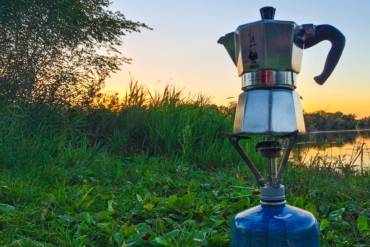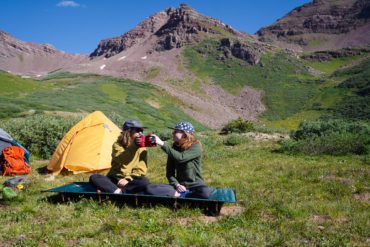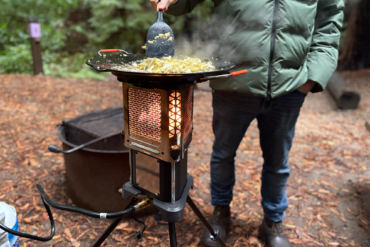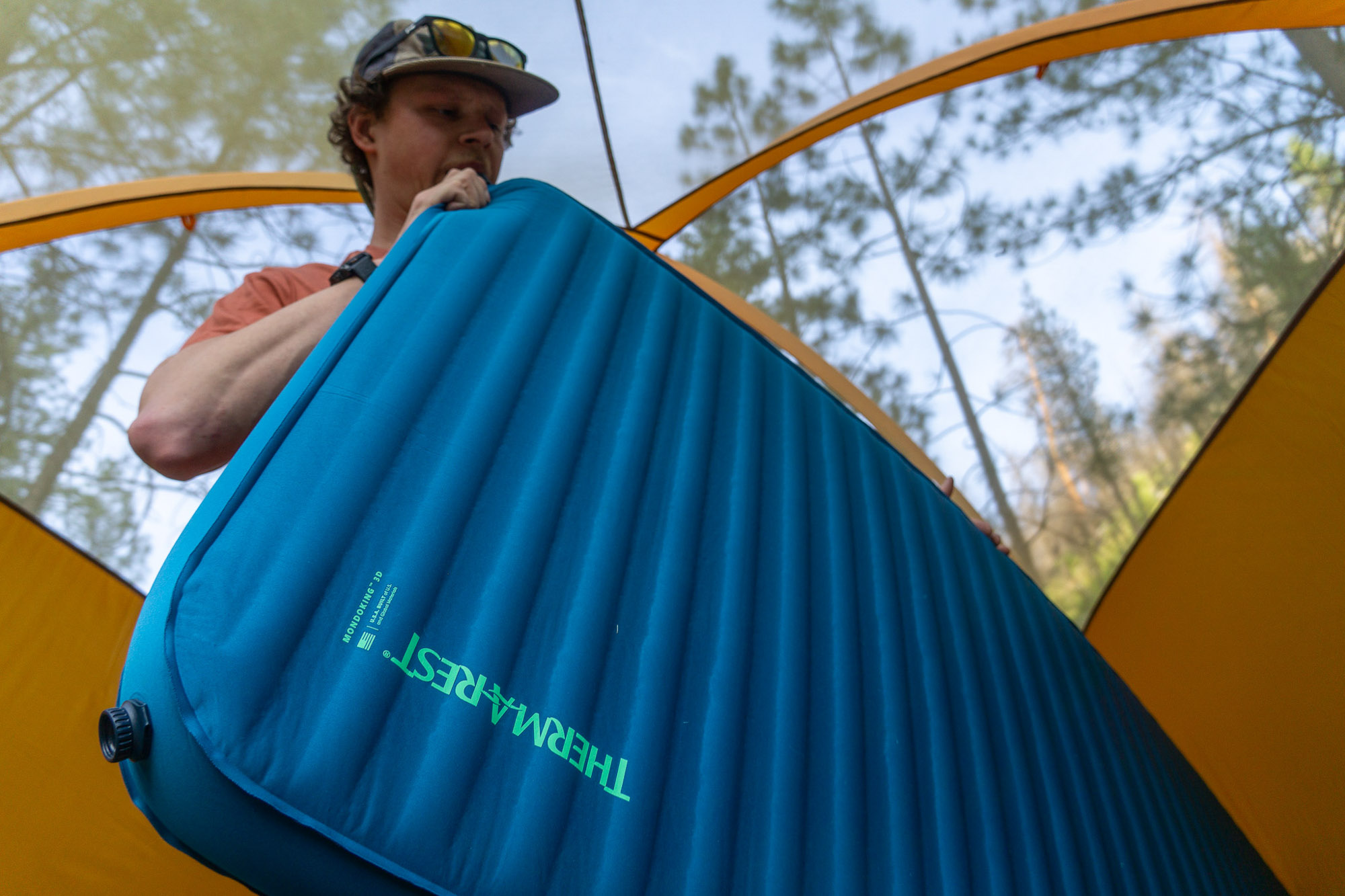Adventure Medical Kits (Thermo-Lite 2 Bivvy; Heatsheets Bivvy)
Sometimes the simplest innovations are among the best. Thus is the case with two new bivy sacks from Adventure Medical Kits (www.adventuremedicalkits.com), which are essentially improvements on the decades-old concept of the Space Blanket.
A bivy sack is a sleeping-bag-like product, a large shell to slip inside and lie down, though without lofting insulation. They repel rain, wind and snow and are used in lieu of tents or tarps by mountaineers, minimalist backpackers, and other hard core adventure types who sacrifice comfort, and some protection, for weight savings.

Bivy sacks, which are usually made of Gore-Tex or other waterproof-and-breathable materials, are used with a sleeping bag inside, the system functioning as an insulating and protecting package.
But Adventure Medical Kits’ two new bivy sacks are made to be used alone. You can put a sleeping bag inside the larger one, as a friend of mine did to increase warmth during a recent mountaineering trip. Though the Thermo-Lite 2 Bivvy and Heatsheets Emergency Bivvy, both made of a reflective Space-Blanket-like material, are best employed alone.

Made for emergency situations as well as ambitious fast-and-light adventures, these two bivy sack products, which measure about 36 × 84 inches, weigh almost nothing. They are water- and wind-resistant.
As per my tests, they provide adequate warmth, as well, keeping me fine and cozy in lightweight clothing during a recent overnight mountain bike adventure where temps dropped to the high 50s.
To keep off the desert ground, I slept out on a slab of cement at a campsite alongside the backcountry trail. I wrapped up in the Heatsheets Emergency Bivvy and used a bike shoe as a pillow. With nothing but stars above I slept hard for four hours before getting up and on the go again.
One caveat: Both these bivy sacks are made of non-breathable material, meaning they get clammy if sealed tight around the body for long periods.
The Emergency Bivvy is made of a polyethylene material that is metalicized to reflect back body heat. It’s different from Mylar or Space-Blanket-type products in that the fabric is plastic-like and somewhat stretchy. It won’t tear and shred like an old-school Mylar job.
At 3.5 ounces, the Emergency Bivvy is something that can be thrown in a pack and forgotten. It costs $15. It’ll be there when it’s needed, in an emergency or otherwise. An orange shell adds visibility should you be stranded awaiting rescue.
The Thermo-Lite 2 Bivvy is a step up. It can be more comfortably used as a lightweight replacement for a sleeping bag when nighttime temperatures are 50 degrees or higher, though I’d recommend having a warm top like a rain shell and a hat of some sort, like a Buff or a fleece beanie, if you’re going to attempt this ultra-light feat.
At 6.9 ounces the Thermo-Lite 2 Bivvy is made of a heavier, more durable material. Velcro tabs seal it shut, letting you get in and wrap up cozy for warmth. It goes for $33, and it is worth every penny.
(Stephen Regenold writes The Gear Junkie column for eight U.S. newspapers; see www.THEGEARJUNKIE.com for video gear reviews, a daily blog, and an archive of Regenold’s work.)






